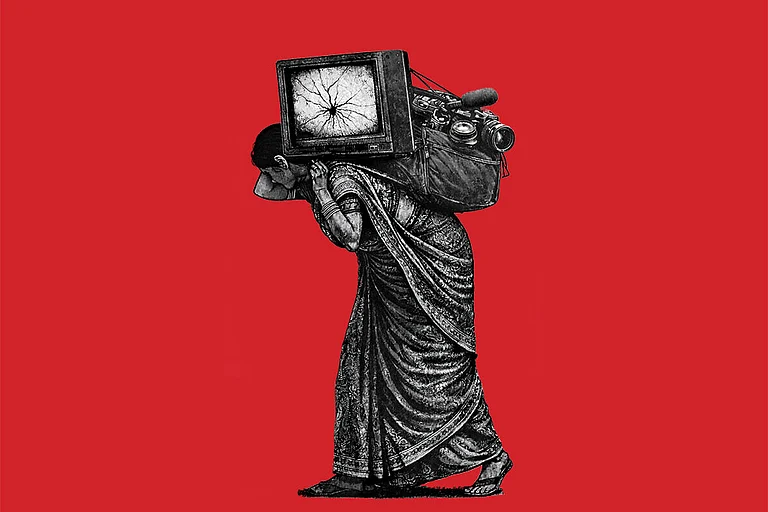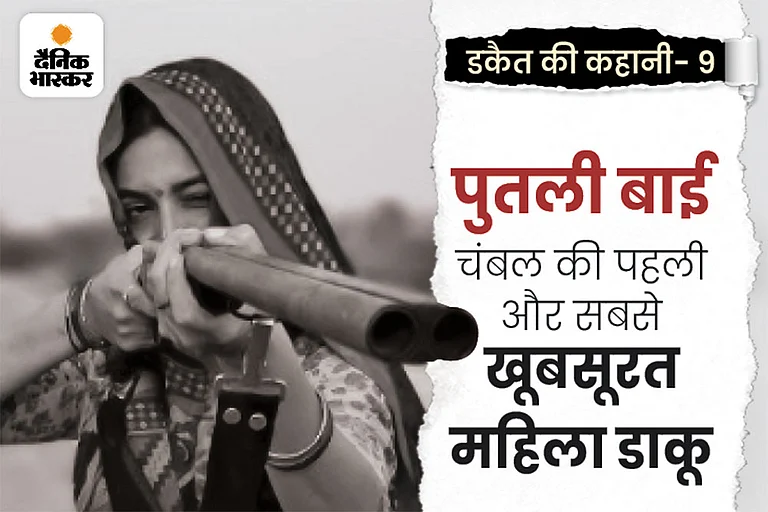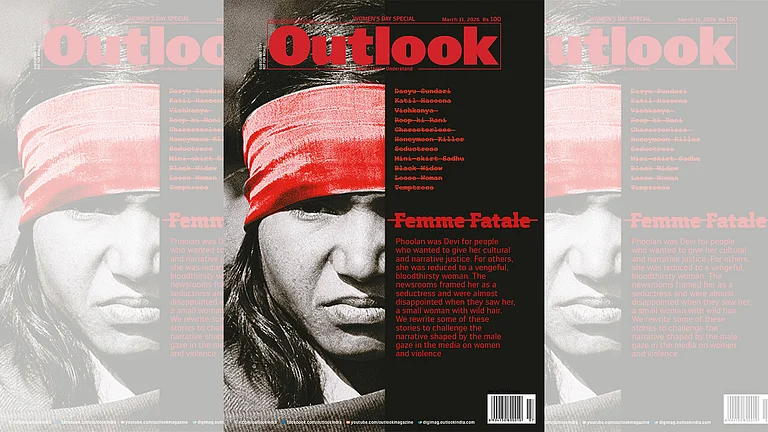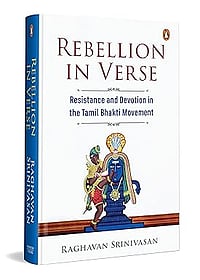It cannot be denied that most epics of different countries, crafted in different epochs, have been written by men. This is a common feature of patriarchal societies. Every society has acquired its customs and characteristics from these epics in which women have been conditionally considered secondary and unimportant sentient bodies. The moral framework we follow today has been customised by patriarchs. It is unfortunate that even with the passage of time, their teachings are being justified by many using religious codes. The absence of empathy towards the women of these epics is not surprising. K. Srilata’s recent collection of poems ‘Footnotes to the Mahabharata’, puts forth the words of the many women of ‘The Mahabharata’. While grasping the epic’s dharma and faith, we have failed to place our trust in the female characters who never stepped into the battle of Kurukshetra, but fought the larger, mightier one with society and its hypocrisy.
Srilata, in her book, becomes the voice of five major women characters of The Mahabharata. Each of them stood up for themselves but were defeated and suffocated by the actions of either their partners or those who are being touted as synonyms of ‘the greater good’ today. Whenever the epic is mentioned, we tend to focus on the male characters because their actions have been valourised to not only overshadow the women, but also to culturally assert the dominant ideas of patriarchy. Srilata tries to help readers to see through the wisdom implanted by men and to articulate the unheard words of the women of the epic. These women teach us valuable lessons about internal chaos when external conflict hijacks the limelight. The poet is a sickle that slices through the notions of yesterday here.
The book, divided into five sections, each dedicated to a woman, begins with Alli, a valiant warrior who grew up like a boy, and fought like a man. She is found in the Tamil ‘Mahabharata’, and by reading about her life, we witness the unmasking of the holiness of the perfect men of the epic. In ‘More Son Than Daughter’, the poet notes that how, like most men, the Pandyan King wants his daughter to embrace womanhood by compromising with her own wishes. When he tells his Queen that by raising Alli like a man, the girl has learnt not to look at any other man, the Queen wisely points out that it is only because of her attitude that his kingdom is still alive.
In another poem, beggars talk about Alli’s kindness towards the oppressed. In a patriarchal society, men are not expected to be kind. It is considered a ‘feminine’ trait. The beggars understand that Alli’s fierceness is reserved for the wicked. Srilata’s haiku, at the very end, speaks about how the scent of ‘mogras’ goes unnoticed in the wilderness. Men are chaotic and loud and they drown out women’s voices and acheivements.
“Her fierceness, Mother,
is reserved for the wicked.
With the likes of us,
she is most gentle.”
In a conversation between Arjuna and Krishna in the poem ‘Come What May’, we come across the violent and misogynistic traits of the one who was exposed to the wisdom of ‘The Bhagavad Gita’. We read about how Krishna played a major role in encouraging one of the many misogynist acts in ‘The Mahabharata’. The obsession with conquering a woman is not born in a single day. It takes years to grow into its fullest form. In the poem, Arjuna plays a trick to conquer Alli, and says that if he does not have her, he will not be able to rest in peace. Both Krishna and Arjuna dress up as women to violate Alli’s body (since it is the foremost objective of conquest). Srilata’s poetic charm lies in expressing these occurrences in very few words. But she does not hide behind the veil of metaphors.
“Conquer them, I must
or I can’t rest in peace.
Let’s go to her dressed as women.
Let’s trick Madurai’s warrior queen.”
In the section on Hidimbi, the poet gives us a clear picture of how the Aryans used to view women. In the first poem ‘They Say’, Hidimbi says that her body is detested by those who are born tall, white and lean. Bhima, being a muscular man himself found an interesting woman in Hidimbi. In the poem ‘Beloved’, Hidimbi expresses her gratitude towards Bhima for noticing her, for calling her ‘beloved’. It becomes vital since everyone else opposed against his choice, but he did not hesitate. Still, Hidimbi and Bhima had to part since the Kshatriya clan labelled her a stain on their identity. In the poem, where Hidimbi’s longing is addressed using a timeline, Srilata writes about Hidimbi’s yearning:
“…years later,
the parts of us which have grown
in the absence of the other,
and those which have decayed,
will greet each other as strangers.”
Romanticising Krishna has always been the forte of Hindu priests, texts and mythologists. Sadly, we are made to forget that he was not perfect. It is important to address his flaws as well to imbibe the wisdom he can offer. In the section dedicated to Draupadi, a poem named ‘My Heart Will Go Where It Pleases’, Draupadi’s friend places Krishna on a higher pedestal as a lover. She criticises the desires of Draupadi and opines that only Krishna can school her to become a good lover. Srilata cleverly writes what most women want to say to anyone who tries to school them: “there isn’t a stable in the world that can hold this runaway colt”. An apt response. A silent revolution.
Similarly, in the poem ‘What Do I Do with a Man Like This’, the poet expresses the frustration of married women who keep making adjustments. The complaints of men never end, and all women are expected to do is mend. Draupadi’s frustration, in this poem, springs from Bhima’s constant need for her presence, although he knows that she is not allowed to exclude any of his brothers from her affections. The poet than unmasks the patriarchal beliefs of Karna who told Draupadi that “to drink water from the hands of a woman would strip dharma off his soul”. Even today, this belief is not uncommon.
Gandhari has been portrayed for ages as the righteous wife who blindfolded herself because her husband was blind. Little was said about the desires of a woman who chose to be blind in a patriarchal household. In the poem ‘The More I Burned’, we find a Gandhari who confesses how her own choice went against her and the more she was sucked in, the taller the walls of the kingdom grew around her wishes. The mother of the Kauravas spells out her desires and reveals the rebel in her in the poem ‘The Life That Might Have Been Mine’, where she shoots down her friend’s criticism of a jeweller she used to love. This is where the sacrificing woman metamorphoses into a woman who has her own needs. She says that when she thinks about the jeweller, she thinks about how she could have claimed her life as her own. Readers must understand that it not a blindfolded woman who is speaking. We hear the voice of a woman who knows what she wants but cannot utter them because of her obligations.
“You will think me mad for saying this
but on bad days
my thoughts turn to him
as sunflowers to sun
and I mourn the life
that might have been mine.”
Srilata’s poems on Kunti explore Kunti’s desire for Maruta, her lover. Kunti does not condescend to Pandu, her husband, but he knows his limits nonetheless. Through these poems, we get to see a woman who never stood out as a bold presence, yet always maintained a certain distance from sacrificing her own choices.
Srilata’s collection skillfully weaves the lives of these five women into a single string and lets them break free so we can read and analyse where we went wrong and opt for course correction ourselves. She also makes these women, who had to stay silent then, speak loud and clear so that the world listens to what they have to say. The poems remind us that had they been free to speak, their words would have shattered the kingdom.
(Kabir Deb is a poet and Interview Editor of Usawa Literary Review)
























